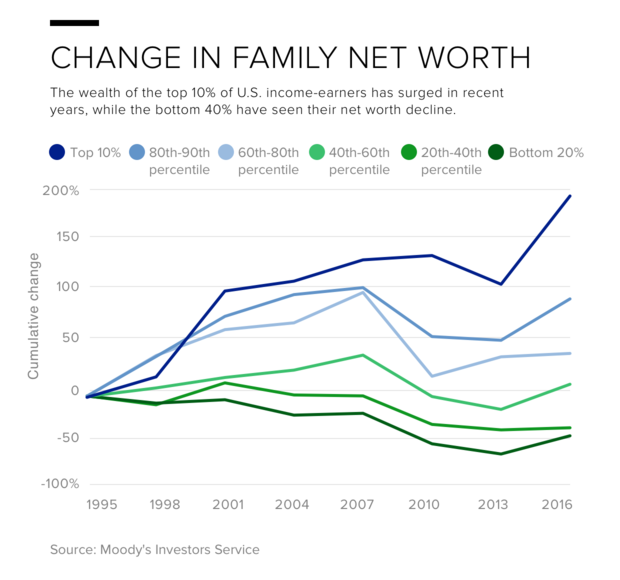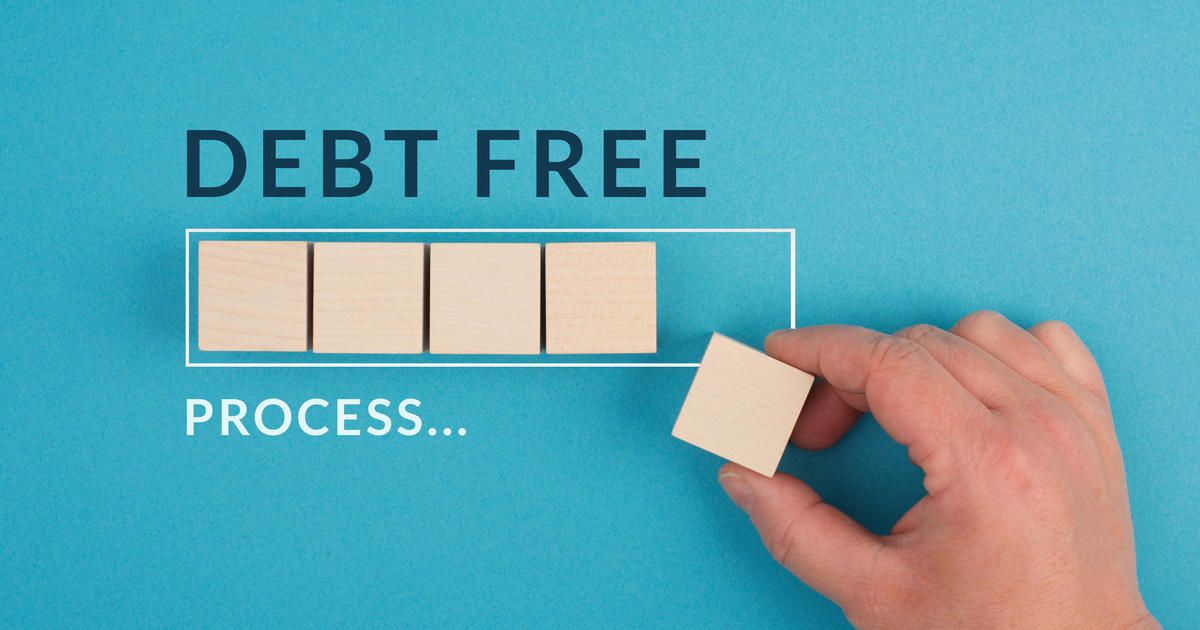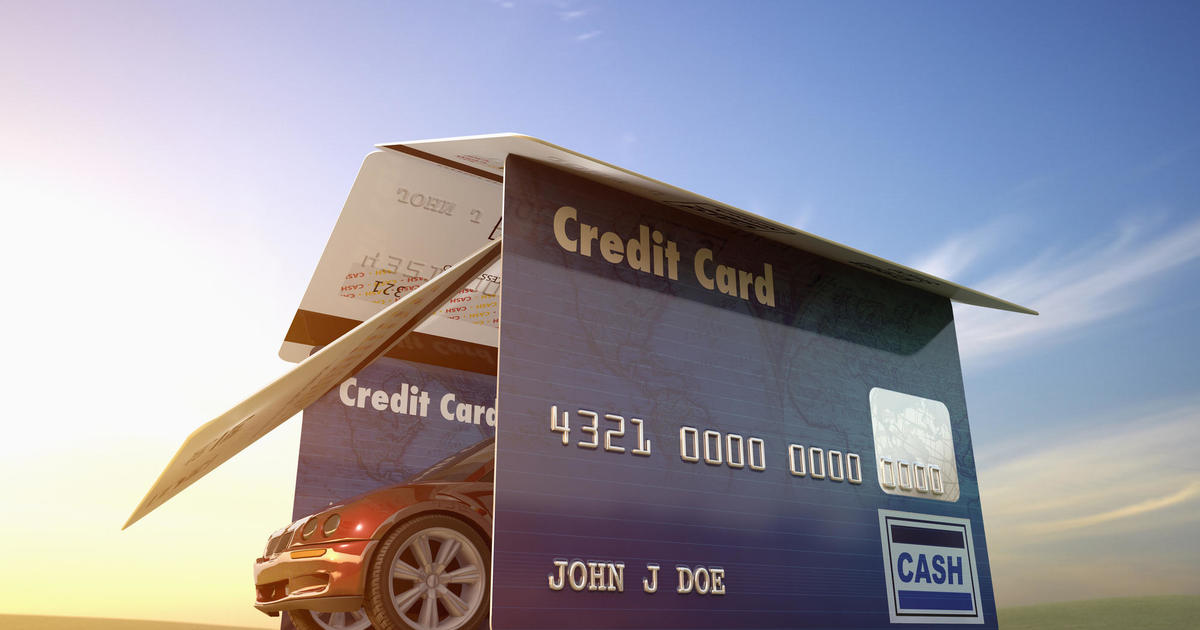Inequality is worsening and could hit U.S. credit rating: Moody's
Rising wealth and income inequality is casting a pall over the American economy, according to Moody's Investors Service.
Although growing disparity between the country's richest and poorest citizens has been tracked by everyone from economists to politicians, the research firm's analysis examines how the trend might impact the country's financial flexibility and creditworthiness. Moody's stark take: The widening gulf could sap the country's ability to repay its debts because of weaker economic growth and ineffective government institutions.
"Over the past two decades, income and wealth inequality have increased in the U.S. as high- and very high-income households have commanded rising shares of income and wealth," Moody's analysts wrote in the research report. "The top 10 percent of income earners have seen their overall median net worth increase by almost 200 percent since 1995, while the bottom 40 percent of income earners have experienced a decline in median net worth over the same period."
Income inequality can have a corrosive impact on social institutions and is linked to political unrest, Oxfam warned earlier this year. Yet despite lip service from most lawmakers, inequality has continued to rise.
A number of factors help explain why the rich are outdistancing other Americans, including globalization, more stringent job requirements, the disappearance of middle-class jobs, surging college costs and eroding union membership. While inequality has been rising for decades, the trend threatens to intensify after recent policy changes such has a 2017 tax law that disproportionately benefits higher-income households and big corporations, according to Moody's.
Workers with college educations are benefiting from the changing labor markets. But many recent grads are constrained by college debt, while American workers without college degrees are increasingly falling behind.
"The labor market is not keeping pace with the ongoing transformation of the economy, increasingly rewarding workers in dynamic services jobs while leaving behind manufacturing and workers in low value-added sectors," the report said. "This dynamic is contributing to the widening inequality gap between urban and rural areas of the U.S."
To be sure, inequality doesn't only affect the U.S. But the level of inequality in the U.S. is higher than in other major economies, according to Moody's, noting that the so-called Gini coefficient -- a standard measure of how wealth and income are distributed in a country -- shows that things have gotten "substantially" worse in the U.S. since 1990.
Inequality of opportunity
The rising cost higher education in the U.S. is likely to reinforce the disparities in the labor market, Moody's warned. College costs have surged more than 50 percent over the past 15 years, far outstripping the average household's disposable income. By contrast, German households spend about 6 percent of their average disposable income to pay for an undergraduate degree, the researchers found.
Americans now owe a record $1.5 trillion in student debt, more than double the level a decade ago. Student loans are now the second-largest type of household debt, after mortgages. And while a college degree is increasingly essential for financial security, it is becoming more out of reach for low- and middle-income households.
That poses a serious risk to America's economic and social stability, the Moody's analysts wrote. "Over time, if left unaddressed, rising inequality of opportunities through high costs and uneven access to education could entail credit-relevant social, economic and fiscal costs for the U.S."
"Fractious" politics
A plethora of research shows that higher inequality is tied to slower economic growth. The International Monetary Fund has found that a one percentage-point increase in the share of income gained by the top 20 percent of income earners decreases GDP growth by 0.1 percent over five years.
That's because rising inequality leaves low-income households less able to invest in education, acquire vital skills and even look after their health. The result on a national scale: People's potential contributions to economic growth are wasted, lowering the country's productivity.
"This is particularly relevant for countries with relatively shallow safety nets, like the U.S.," Moody's said.
Low- and middle-income households also may turn to debt to keep afloat, leading to financial crises like the housing crash.
The risks aren't only economic. Moody's warned: "Should inequality go unaddressed, social tensions will continue to rise, leading to a more fractious political landscape that increases political risk, and with it a less predictable policy environment."




